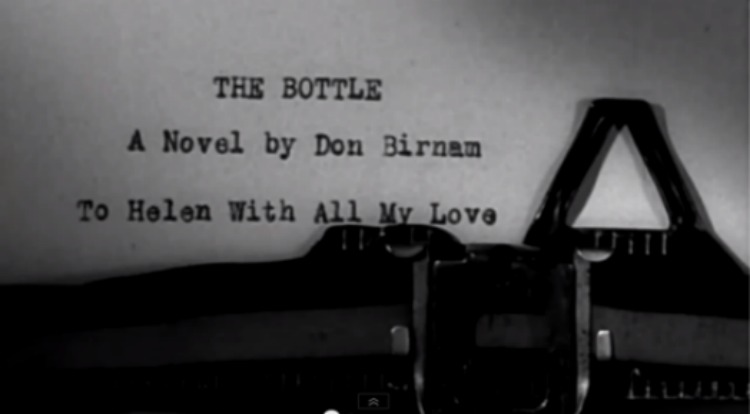Billy Wilder’s Oscar Winning picture, The Lost Weekend (1945) starring Ray Milland as a washed-up New York writer, is one of the more frank depictions of alcoholism on film; unusual in 1945 for its candid depiction of dissolution and for its unflinching portrayal of a self-indulgent and unsympathetic ‘hero’ driven to despair by frustrated ambition.
Milland plays Don Birnham, a struggling writer craving success, but also a hardened and determined drinker, constitutionally incapable of writing due to his reliance on whisky. A college drop-out with pretensions to literary grandeur, Birnham has taken to drink to drown his increasing self-doubt and the suspicion that he might not be up to the job of writing the great novel.
The emblem of this self-doubt and also the object of Birnham’s key relationship – a relationship which is more instructive than the strained romantic affiliation with the saintly Helen (Jane Wyman), because it explains his neurosis – is his Remington Portable Typewriter: an understated but cardinal presence in the film, and a potent and manifest symbol of ruined intent. The typewriter is at once a concrete rebuke to Birnham’s dissolving moral character, and a silent chorus to the tragedy of his condition; its stark inanimacy acts as a caution against wrecked ambition in the way that Shelley’s colossus of Ozymandias acts as council against complacent pride.
In standard readings of the film, the typewriter acts as a device of hope: a lodestar by which Birnham might find his way. As its owner becomes increasingly inebriated the typewriter becomes remote from his psychological landscape, but it is still physically present: the first breadcrumb on the path back from despair.
It appears, almost incidentally, as a prop to be leant on at the bar; tucked under an arm on a drunken trawl through the streets; then abandoned at the foot of the flight of stairs Birnham has fallen down after hitting on the good-time girl Gloria (Doris Dowling). For him, the typewriter is no longer the portal to a writing career: it is a bargaining chip and a means to a different end. It is notable that the moral low point of the parable comes when Birnham tries to pawn his typewriter for whisky money.



